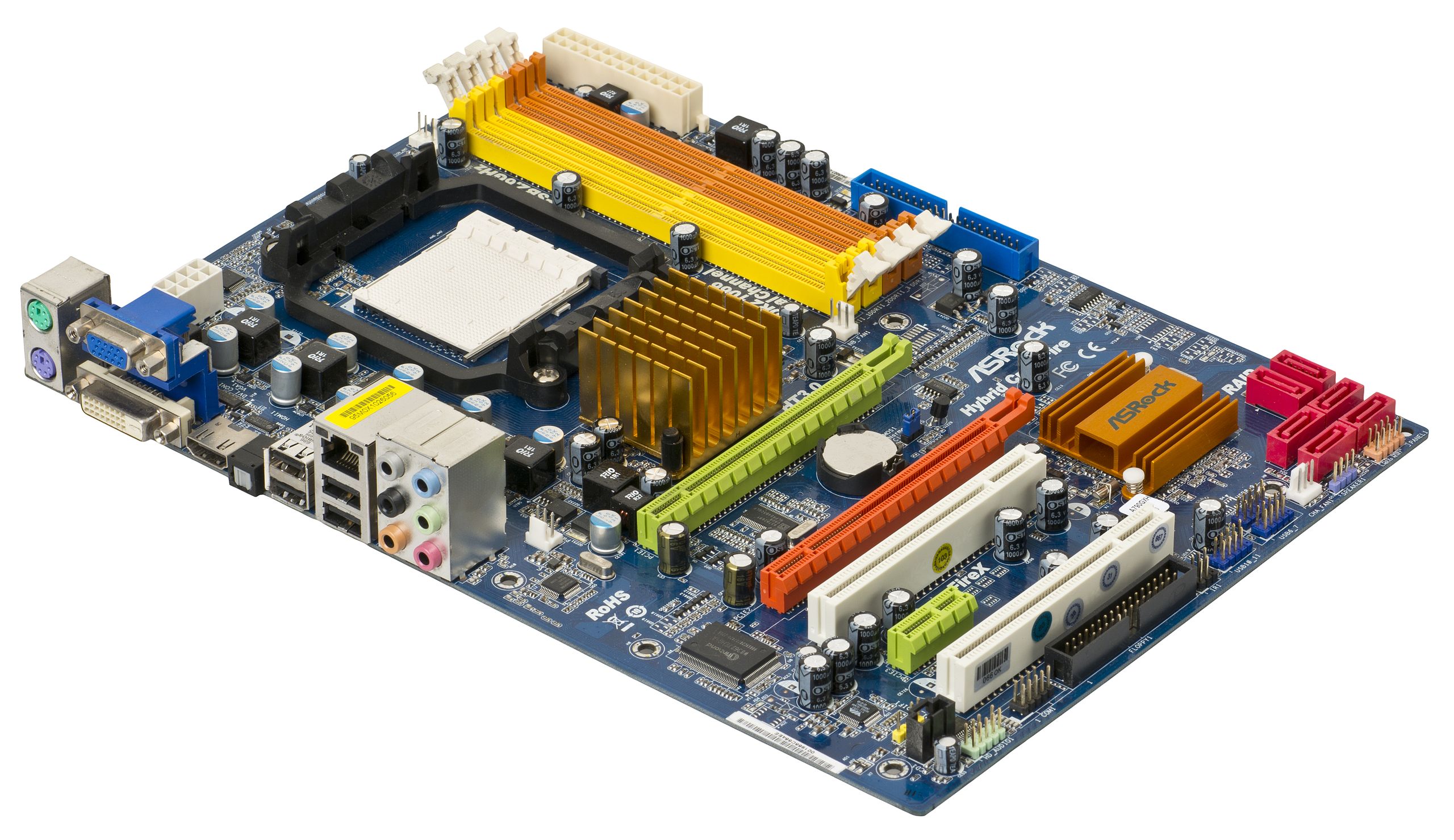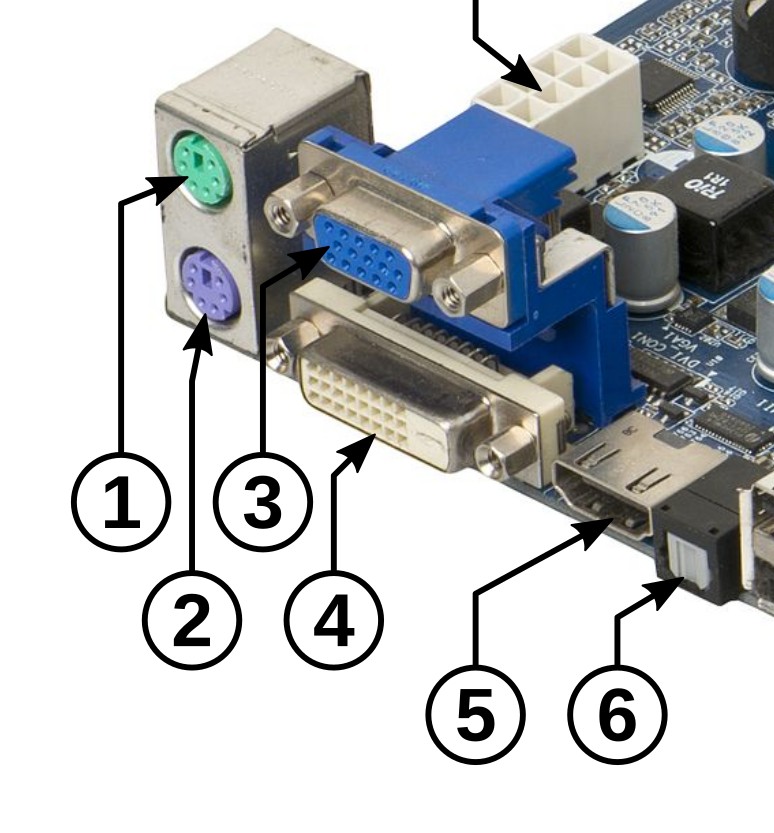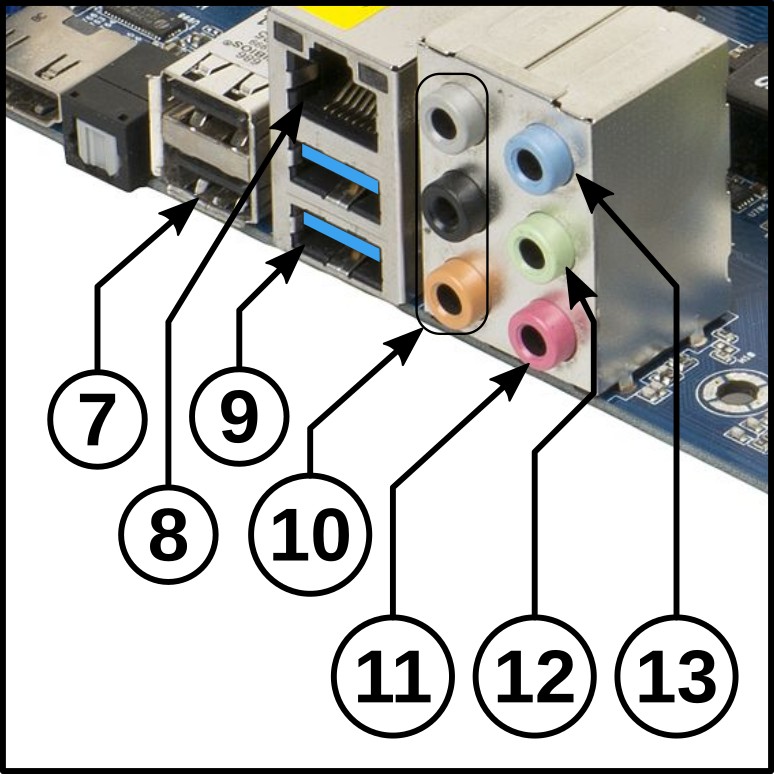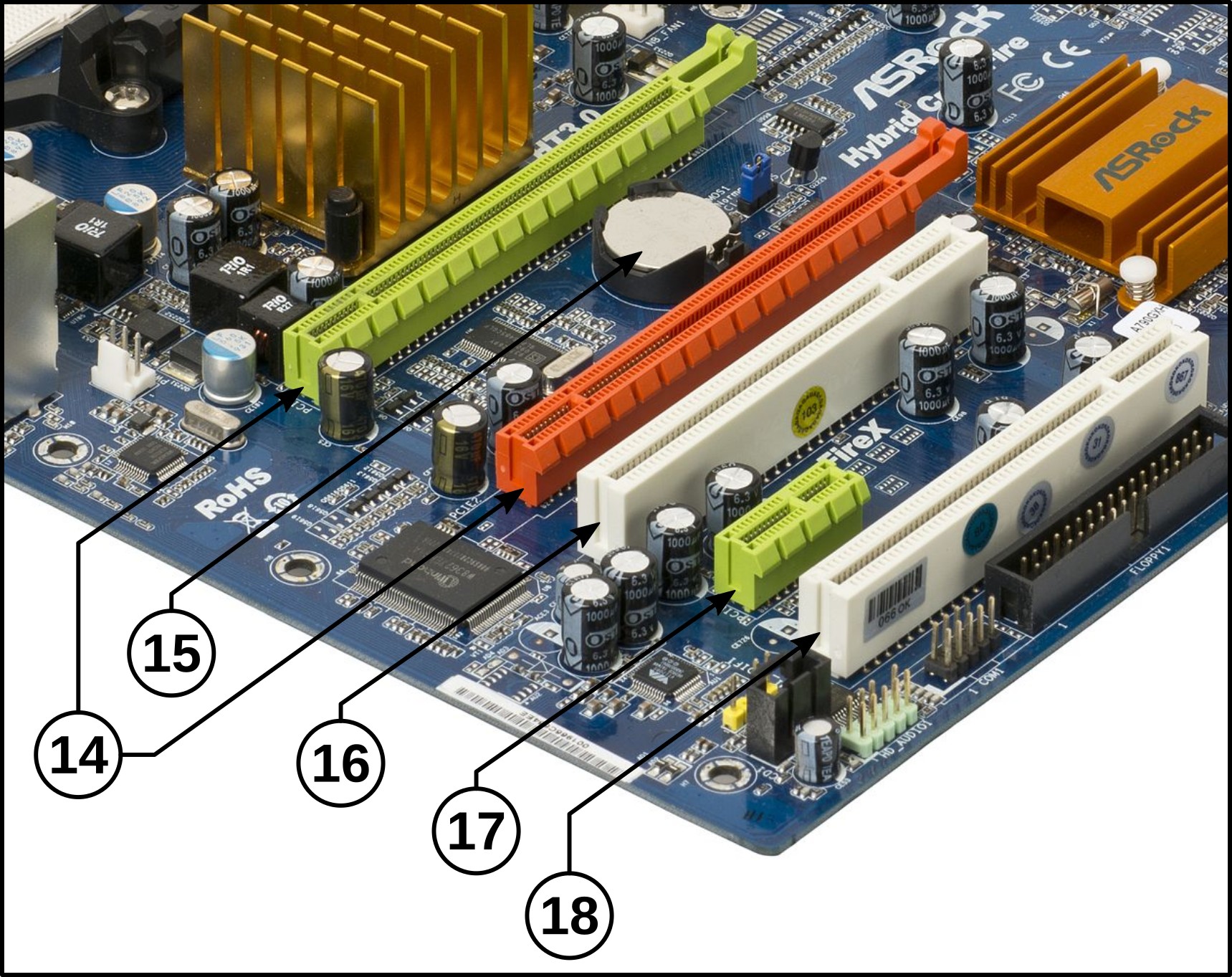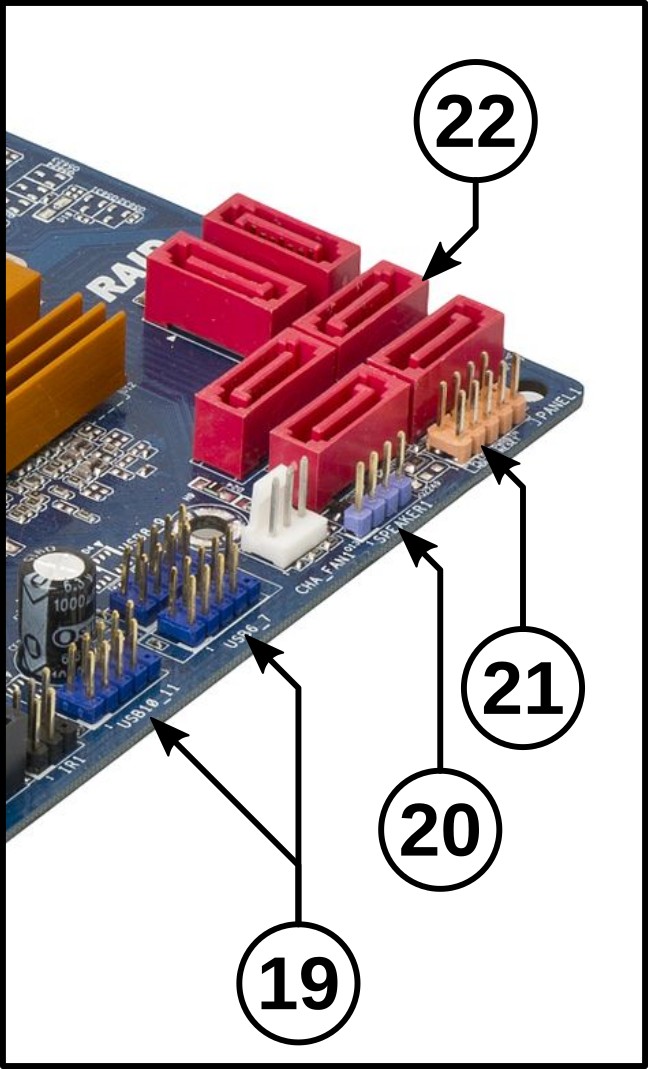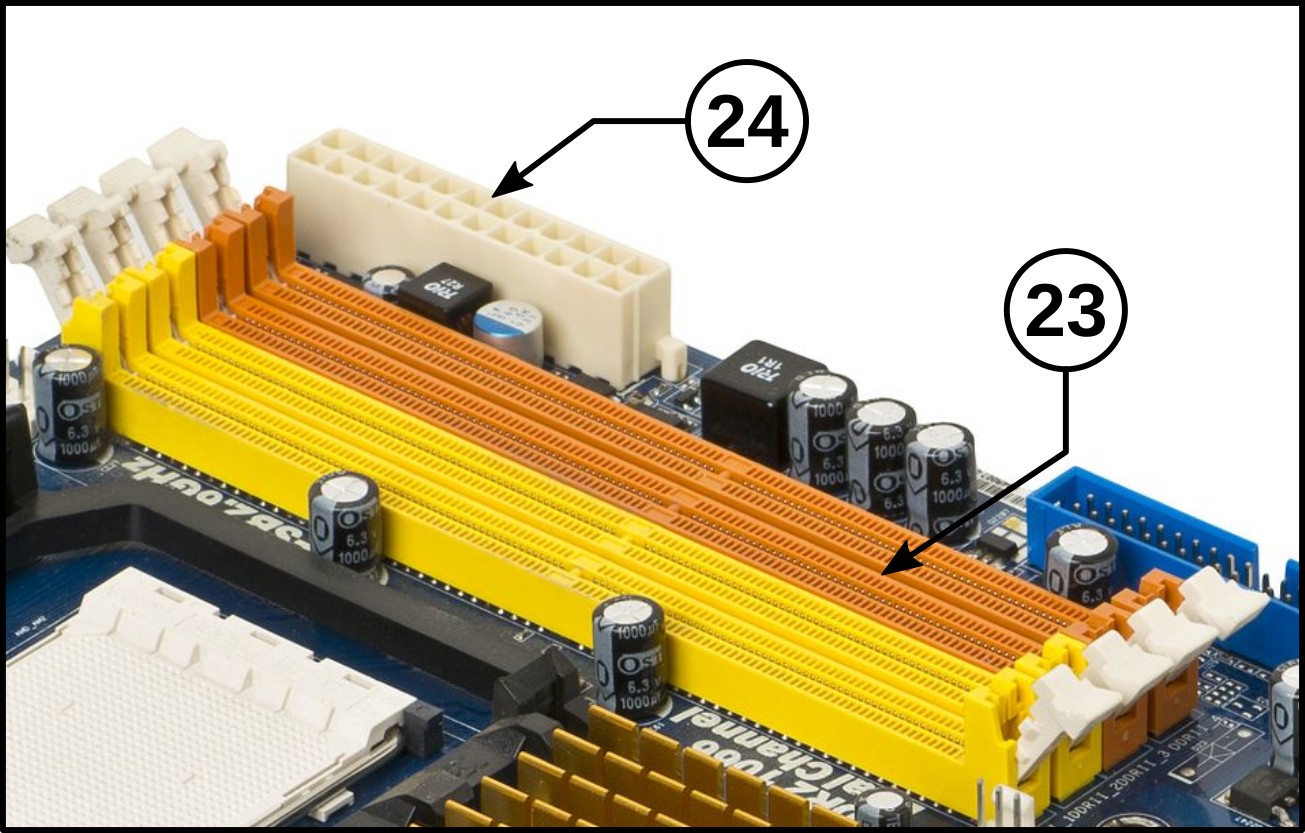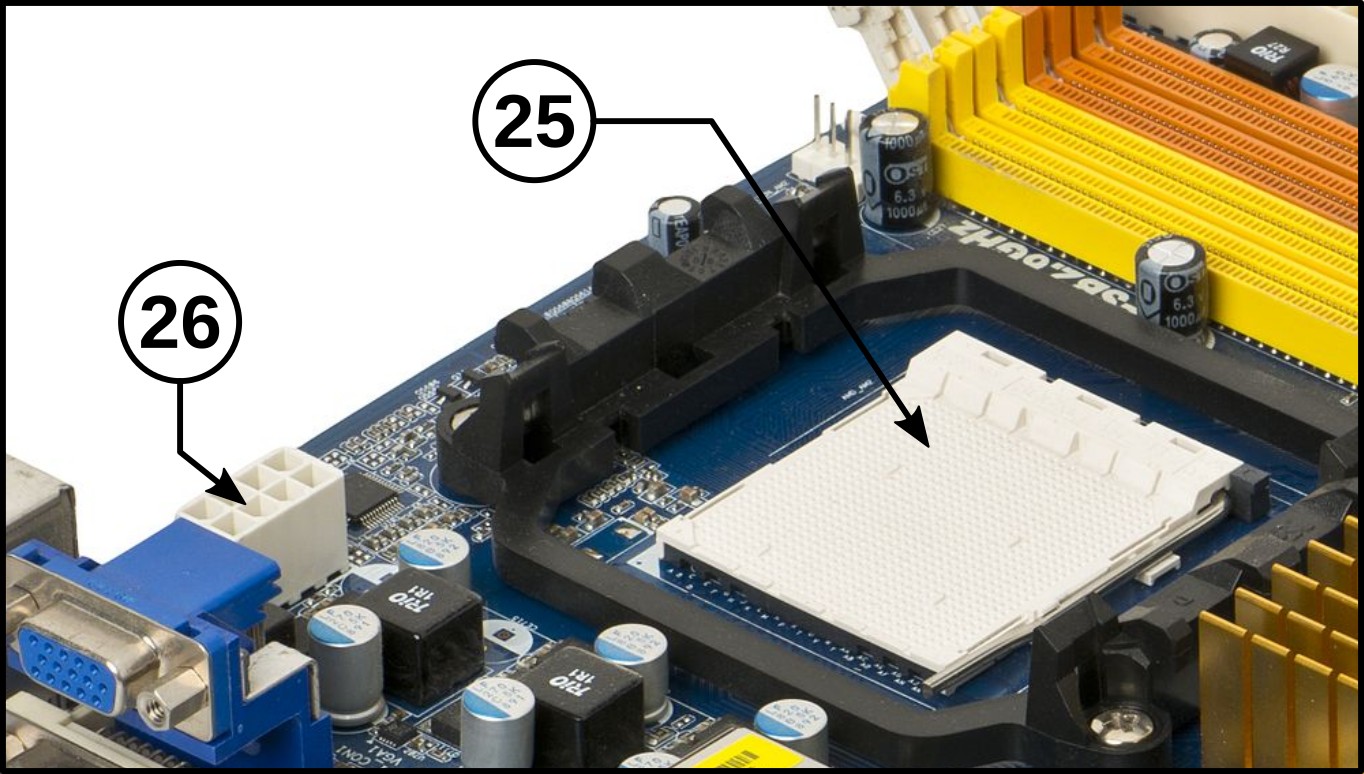Motherboard¶
A motherboard also known as a motherboard or motherboard is a printed circuit card that supports and connects the internal components of a computer. It also has multiple standard connectors to connect external components.
Typical elements of a PC motherboard¶
PS/2 connectors:
1 - Green PS/2 connector, for mouse.
2 - Purple PS/2 connector, for keyboard.
Video Connectors:
3 - VGA connector for monitor.
4 - DVI connector for monitor.
5 - HDMI connector for monitor.
Digital Audio Rear Connector:
6 - S/PDIF connector for digital audio output.
USB and Ethernet connectors:
7 - USB 2.0 type A connector.
9 - USB 3.0 type A connector.
8 - RJ-45 connector for local area Ethernet connection.
10 - 7.1 analog audio output. Side, rear and subwoofer speakers.
11 - Analog input for microphone.
12 - Stereo analog audio output. Front speakers.
13 - Analog audio input, line level.
Expansion card connectors:
14 - PCI Express x16 connector.
15 - Battery for the CMOS memory of the motherboard.
16 and 18 - Old PCI connectors.
17 - Connector PCI Express x1.
Connectors for the box and SATA:
19 - USB connectors for the PC box.
20 - Connector for the speaker of the PC box.
21 - Connectors for the LEDs of the PC box and power button.
22 - SATA connectors for connecting hard drives, SSDs, DVDs, etc.
Other connectors:
23 - Four connectors for the memory RAM DDR4.
24 - Motherboard power connector.
Other connectors:
25 - CPU connection socket.
26 - Motherboard power connector for the CPU.
